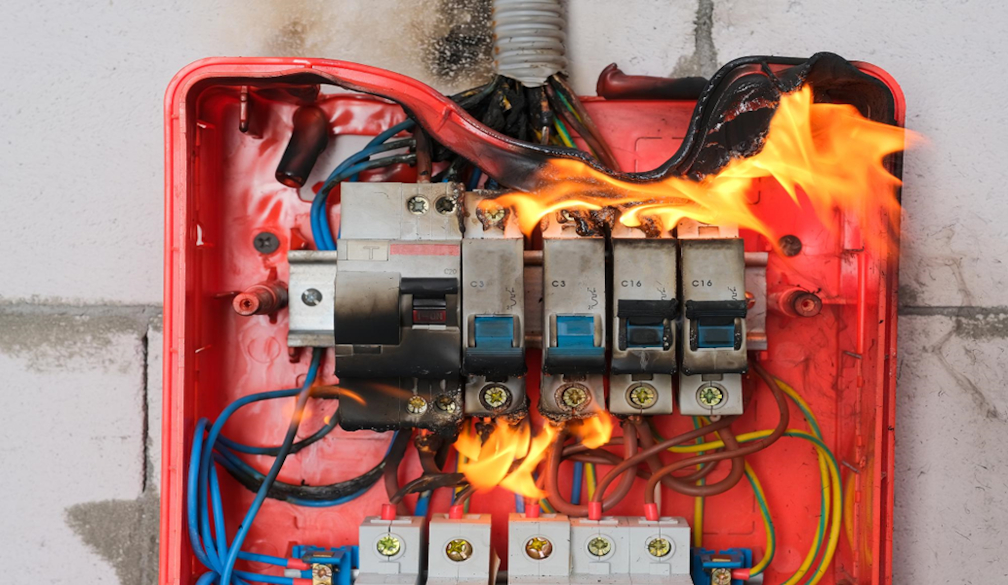Essential Guide to Preventing Electrical Hazards in Your Home

Understanding the importance of electrical safety in our homes is paramount. Countless dangers exist, often camouflaged by the routine of daily tasks. These unseen hazards can range from faulty wiring to overloading circuits. This article aims to guide homeowners on how to identify and prevent such issues, creating a safer living environment, and negating the potential for any hazardous occurrences. Addressing electrical issues in a timely manner not only forms a safeguard around you and your loved ones but also saves you from hefty repair bills down the line.
Understanding Electrical Hazards
Electrical hazards represent any situation where power imbalance occurs, creating a risk of electrical shock, electrocution, fire, or explosions. The most common ones around the house usually involve wiring problems, antiquated electrical systems, improper use of extension cords and outlets, and misuse of light bulbs and fixtures.
Signs of these hazards can present as flickering lights, warm or buzzing switches and outlets, circuit breakers tripping frequently and, in more severe cases, even burning smells or visible sparks. Ignoring these warning signals not only jeopardises your property's safety but also poses potential harm to your family's well-being.
Importance of Regular Home Electrical Inspections
Conducting regular home electrical inspections can act as a proactive measure to ensure the safety of your home. These inspections assess the condition of your wiring systems, identify any outdated equipment, test safety switches, and also go about identifying causes of safety switch failure.
For best results, industry experts recommend scheduling this check every 3 - 5 years. Moreover, sourcing a reputable electrical inspector from electrical services Melbourne is crucial — they are trained to identify potential hazards that non-professionals may overlook.
Electrical Safety Tips for Children
Children, due to their curious nature, may be prone to electrical mishaps. Therefore, it's vital to establish rules for safe electricity usage, such as not touching power points, keeping electronics away from water, and never poking objects into appliances.
Education plays a significant role, explaining the concept of electricity and its potential dangers to young ones helps instil caution. It's also prudent to child-proof electrical installations wherever possible. Covering power points and securing wires out of reach elevates your home's safety level for little explorers.
Preventative Measures for Common Electrical Hazards
While electrical hazards are undeniably dangerous, most can be prevented with diligent safety practices. Actions as simple as replacing worn-out cords and plugs, not overloading outlets, and ensuring appliances are turned off when not in use can effectively safeguard you against common hazards.
Additionally, using safety devices such as surge protectors and GFCI outlets can add an extra layer of protection. Personal household appliances also come with their set of guidelines for safe use, adhering to these instructions aids in preserving their longevity and preventing accidents.
When to Hire a Professional Electrician
Regardless of preventative measures taken, certain situations require the expertise of a professional. Instances such as fading power, frequent tripping of safety switches, and any instance involving shocks, smoke, or sparks, call for immediate professional intervention.
When hiring an electrician, examine their certification and assess their experience. Recognising the importance of their timely intervention often results in averting major disasters, as well as proving more cost-effective in the long term. Damage to electrical systems can often escalate if left untreated, leading to more extensive, and expensive, repairs.
Conclusion
The significance of maintaining a safe electrical environment at home can never be overstated. By understanding and addressing common hazards, regular inspections, enfolding children in safety practices, taking preventative measures, and recognising when to solicit professional help, we can ensure our homes remain a bastion of safety.
Remember, the best way to ensure optimal electrical safety is through consistent professional inspections. Stay safe, and keep the lights on!









